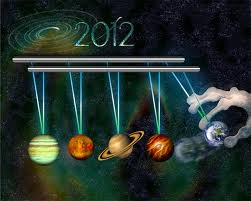
Well, here we are at the end of the year and looking at the new one that is just around the corner. Santa has left the building and we prepare to stumble uncertainly into the New Year. We have all lined up a few resolutions for 2012 including the repeated pledges to lose weight, exercise more and eat healthier foods and oh yes, after the night is over, drink less!!
I made my best resolution in 2008. That was to get off the tread mill of working my a.. off, cranking out a great income only to spend most of it on taxes, new cars, expensive housing and a lifestyle that would have greatly shortened the time frame of my existence had I not had the sense to stop and “smell the roses”. I had planned for that day when I first came to Panama in 2006 after I saw the train coming down the track and wanted a safe haven where I would not outlive my money. Plus, like the folks from Zero Hedge say, “On a long enough timeline, the survival rate for everyone drops to zero”.
Well, five years later I have no regrets, I have dropped almost a hundred pounds, I eat healthier food and I live a much better lifestyle. Yes, there is still room for the improvement and perhaps less, but better red wine from my favorite bodegas in Argentina is one to consider.
We hope that you will make a resolution to take the time in 2012 to visit us here in Panama and see an alternative lifestyle that might just be your cup of tea as well. My wife Susie and I wish you the best for the New Year and may you have Health, Happiness and Good Luck.
For those inclined to know the Origin Of New Year…..
New Year is the world’s most popularly celebrated festival. Perhaps, everybody would like to know how these celebrations began, from where it originated and what is so important about the festival. Let’s give you an insight to the origin of this grand event in a brief form.
Origin of New Year dates back to the era of emperors. They thought of celebrating a special day which should dot a day for beginning and end of the year. First New Year celebrations were noticed in Mesopotamia around 2000 years. It was celebrated at the time of Equinox in mid-March by the Egyptians, Persians and Phoenicians while Greeks celebrated it on winter solstice.
Ancient New Year Calendar
First New Year celebrations were noticed in Mesopotamia around 2000 years. It was celebrated at the time of Equinox in mid-March by the Egyptians, Persians and Phoenicians while Greeks celebrated it on winter solstice. As per the ancient Roman calendar New Year fell on March 1. This calendar just had ten months and March was the first month of the year. The calendar originated by the cycles of the moon, beginning in spring and ending with autumn planting.
Inclusion of Two Calendar Months
It was Numa Pompilius, the second king of Rome who divided the year into twelve lunar months by adding the months of January and February. The New Year was shifted to January as it marked the beginning of the civil years in Rome. But this was not fully accepted by the people of Rome and they continued celebrating in the month of March only.
January 1- an Official Date of New Year Celebrations
The Roman emperor Julius Caesar officially declared January 1 to be a New Year in 46 B.C. Romans worshiped God Janus who had two faces, one looking forward and the other looking backward. The month of January was named after this Roman God and it gave an idea to the emperor to establish January as a gate to the New Year. It is said Caesar celebrated January 1 – New Year by ordering the revolutionary Jewish forces to route back.

People began New Year celebrations on January 1 after many years. They ritualized the beginning of the year by acting and re-enacting the world of the past before peace proliferated. People learned January as first month of the year and with this the tradition of following Julian calendar.
Abolition of Roman New Year Date
In the medieval period, pagan festivals were given more importance and March 25 was announced as the beginning of the New Year. March 25 was called the Annunciation Day as on this day Mary got the news that she should be impregnated.
Later, the King of England ensured that Jesus’ birth December 25 should be commemorated as New Year.
Gregorian Calendar
About 500 years later, Pope Gregory XIII abolished the old Julian calendar and introduced Gregorian calendar which comprised of a leap year after every four years to maintain balance between seasons and calendar. Finally, in 1582, Gregorian calendar was set to celebrate New Year on the first day of January.

